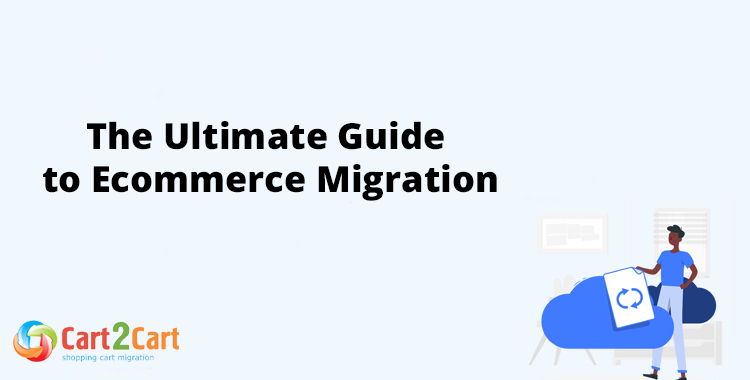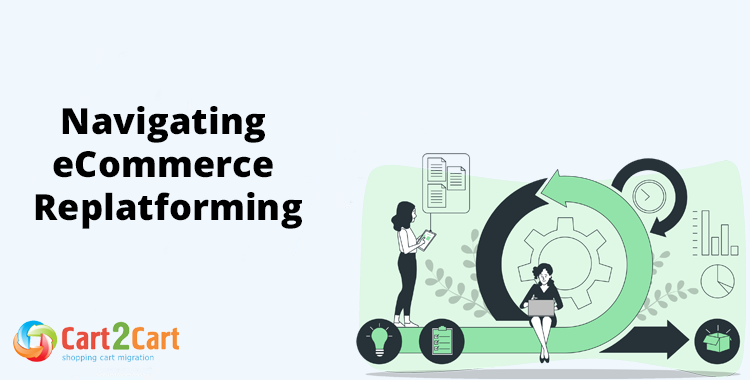Facebook Marketplace Migration
Considering a Facebook Marketplace Migration? Cart2Cart offers a fully automated, secure, and fast solution to migrate from Facebook Marketplace to a new platform, typically completed in just a few hours. Our proven process guarantees zero downtime for your source store, ensuring uninterrupted sales and customer experience. With Cart2Cart, you can confidently transfer all your critical data, including products, customers, orders, SEO URLs, and more, with the peace of mind that comes from a service trusted by thousands of online merchants worldwide. We understand the concerns around data security and complexity, which is why our Facebook Marketplace Migration process is designed for utmost safety and ease of use, guiding you every step of the way.
How to Migrate to Facebook Marketplace
This step-by-step guide details how to securely migrate to Facebook Marketplace from any other e-commerce platform using Cart2Cart, ensuring complete data integrity for your online storefront.
- Register and Initiate: Create a Cart2Cart account to begin your platform switch. This initial step is free and takes only a minute.
- Connect Your Source Store: Provide the credentials for your current platform to allow secure API access for the data transfer.
- Connect Facebook Marketplace Target Store: Prepare your data in a CSV file according to Facebook Marketplace's required format. You will then upload this file to Cart2Cart as your target store.
- Select Data and Options: Choose which data entities to move, including products, SKUs, and customer orders. Configure crucial options like 301 redirects to preserve your SEO rankings.
- Run a Free Demo Migration: Launch a free test transfer to move a limited set of your data. This allows you to check the results directly in your new Facebook Marketplace store before the full replatforming.
- Launch the Full Migration: Once satisfied with the demo, start the full migration. The process runs on our servers, ensuring no downtime for your business.
Pro-Tip: Since this is a target-only migration via CSV file import, ensure your file is correctly formatted according to Facebook Marketplace guidelines to prevent data mapping errors. No additional plugins are required for this process.
Automated migration
Just set up the migration and choose the entities to move – the service will do the rest.
Try It Free
Data Migration Service Package
Delegate the job to the highly-skilled migration experts and get the job done.
Choose Package
What data can be migrated from/to Facebook Marketplace
-
Products
-
Product Categories
-
Manufacturers
-
Customers
-
Orders
Choose all the extra migration options and get 40% off their total Price
We’re committed to protecting our customers’ data security. Check out our Security Policy
The Cart2Cart service has all the necessary functionality to migrate store databases on Facebook Marketplace of any size and complexity. Below are the most popular migration directions among our customers:
Help Center
Let’s figure out everything about Facebook Marketplace migration through
Cart2Cart.
Discover our checklist, related articles, and answers on frequently asked questions.

 June 7, 2023
June 7, 2023 The Ultimate Guide to eCommerce Migration: How-To Directions and Best Practices
Read full articlePay only for what you migrate - the cost depends on the number of records to be moved
Get Your Instant Facebook Marketplace Migration Cost Estimate
Ready to plan your move? Our tool provides an instant, transparent estimate of your Facebook Marketplace migration cost, tailored to your specific needs. Discover your exact Facebook Marketplace migration pricing upfront with no hidden fees, ensuring you know your true Facebook Marketplace migration price for confident planning.
Facebook Marketplace Monthly Pulse: The Shift from Community Hub to Commerce Engine
Welcome to this month's strategic analysis of Facebook Marketplace. As the digital-first and C2C landscapes continue to merge, Marketplace is undergoing a critical evolution. This month's developments signal a deliberate and calculated shift from a community-driven classifieds board to a more robust, commercially viable platform. The narrative is no longer just about user-to-user transactions; it's about Meta leveraging its unparalleled social graph to create a powerful, localized e-commerce ecosystem. This analysis deconstructs the key initiatives driving this transformation and what they mean for the broader market.
Competitive Posture & User Engagement
While direct Gross Merchandise Volume (GMV) figures remain proprietary, Meta's latest investor call highlighted a significant metric: over 1.2 billion monthly users now engage with commerce surfaces across its family of apps, with Marketplace serving as the primary engine. This figure underscores the platform's immense top-of-funnel advantage. Unlike destination marketplaces like Amazon or eBay, Marketplace's strength lies in its integration with daily social activity. It is not merely a place to shop; it is a discovery platform embedded within the user's social fabric, giving it a unique and resilient position in the attention economy. The key takeaway is that Marketplace competes on engagement and discovery, not just on transaction volume.
Infrastructure Integrity & Transactional Velocity
This month, Meta engineers completed a significant backend overhaul focused on the platform's media rendering pipeline, resulting in a reported 15% improvement in image loading times for listings, particularly on mobile devices. While seemingly a minor technical tweak, the strategic implication is profound. For a platform reliant on visual appeal and rapid browsing, this directly translates to lower bounce rates and higher user engagement per session. For merchants, especially in categories like furniture and apparel, faster image loading means a more seamless discovery experience, which is a critical factor in converting passive browsers into active buyers and reducing friction at the most crucial point of initial contact.
Unlocking the Ecosystem: New APIs and Integrations
The most strategically significant development this month was the launch of a new, limited-release Inventory Sync API for automotive and real estate partners. This is a clear signal that Meta is actively courting higher-value, professional sellers who operate in complex, multi-channel environments. By allowing dealerships and property management firms to programmatically sync their listings, Marketplace moves from being a manual-entry platform to a scalable, automated sales channel. The "so what" for decision-makers is that this API is a testbed for broader B2C applications. Its success will pave the way for integrations with major e-commerce platforms, enabling brands to manage Marketplace as a native extension of their existing digital operations.
Strategic Feature Rollout: "Instant Offer" Streamlines Negotiation
Addressing a long-standing point of friction in C2C transactions, Marketplace has begun rolling out its new "Instant Offer" feature in select North American markets. This function allows buyers to submit a firm, binding offer price on an item, which the seller can accept with a single tap, immediately marking the item as "pending sale." This feature is designed to reduce the protracted back-and-forth messaging that often leads to transaction abandonment. For businesses using the platform, this represents a move toward more standardized and predictable sales processes, minimizing the operational overhead of negotiation and allowing for quicker inventory turnover.
Fortifying Trust: The Latest in Transactional Security
In a move to bolster consumer and merchant confidence, Marketplace has deployed an enhanced, AI-driven counterfeit detection model. This new system analyzes listing images, descriptions, and seller patterns in real-time to proactively flag and remove listings that violate intellectual property rights. For enterprise brands considering the platform, this is a critical update. It demonstrates a commitment to brand safety and creates a more trustworthy environment, mitigating the risk of brand dilution from counterfeit goods. This enhancement is less about a single feature and more about building the foundational trust necessary to facilitate higher-value transactions and attract premium brands.
Expanding the Local Footprint: Deepened UK Logistics Partnership
This month saw Marketplace announce a deepened integration with Royal Mail in the United Kingdom, allowing sellers to purchase and print "Click & Drop" shipping labels directly from the platform. This move significantly streamlines the fulfillment process for sellers who are expanding beyond local pickup. Strategically, this transforms Marketplace from a purely hyperlocal service into a viable domestic e-commerce channel. By removing logistical friction, Meta is encouraging a higher volume of shipped goods, expanding the platform's total addressable market within the UK and providing a blueprint for similar logistics partnerships in other key European markets.
Enterprise Spotlight: The Home Depot Taps Marketplace for Local Liquidation
A notable development this past month was the appearance of verified listings from The Home Depot in several major US metropolitan areas. The listings, primarily for floor models, returned items, and overstock inventory, are managed at the individual store level. This migration is a masterclass in strategic channel selection. The Home Depot is leveraging Marketplace's immense local reach to liquidate non-standard inventory without cannibalizing its primary e-commerce or in-store sales. They are effectively turning each store into a micro-distribution hub, tapping into a local audience actively searching for deals. This move validates Marketplace as a powerful tool for reverse logistics and localized inventory management for major enterprise retailers.
Source: This analysis is synthesized from public statements on the Meta Newsroom, recent developer blog posts, and proprietary industry channel checks for the most recent calendar month.
Just set up the migration and choose the entities to move – the service will do the rest.
Try It FreeDelegate the job to the highly-skilled migration experts and get the job done.
Choose Package















